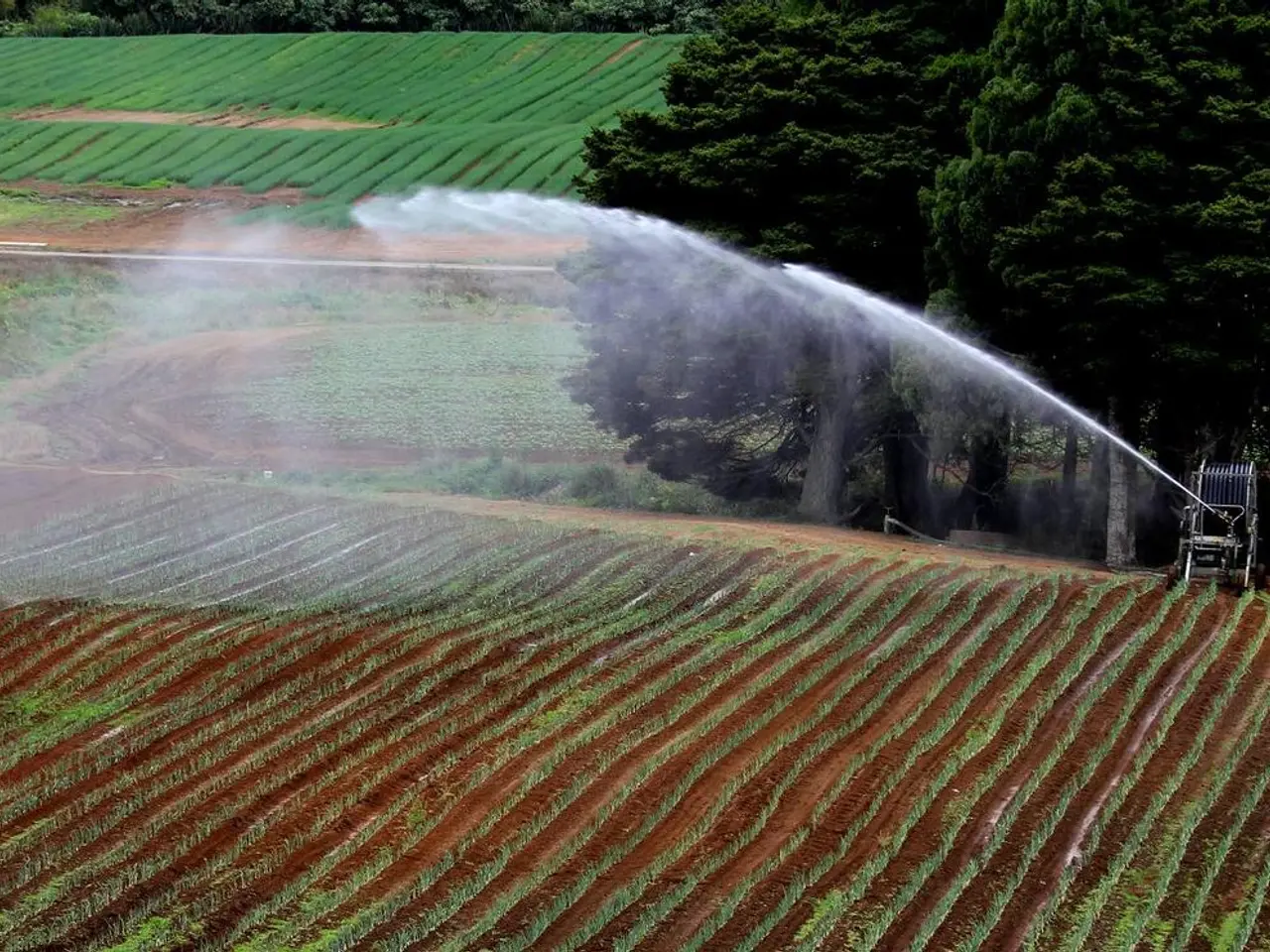Striving for a 'Biohappiness' Era in India
India is taking a significant step towards a more resilient, nutritious, and equitable food system by focusing on Neglected and Underutilized Species (NUS) in its agriculture. This shift offers multiple benefits for climate resilience, nutrition security, and rural livelihoods.
Climate Resilience
NUS are well-adapted to local and marginal environments, requiring minimal inputs such as fertilizers and irrigation. Crops like taro, which grow well in semi-wet, low-maintenance conditions, can reduce dependency on scarce resources, making them ideal for resource-poor and climate-stressed regions. Moreover, many NUS improve soil fertility naturally through intercropping, such as lablab beans that fix nitrogen, promoting sustainable agriculture practices that enhance ecosystem resilience under changing climates [1][5].
Nutrition Security
Many NUS have high nutritional value, often surpassing common staples in micronutrient content. For example, the Barbados cherry (Malpighia glabra) contains ten times more vitamin C than kiwi, and Himalayan chenopods (pseudocereals) have superior nutritional profiles compared to major cereals. This wide nutritional diversity helps combat "hidden hunger" and improve overall dietary quality, addressing malnutrition effectively [1][3][5].
Rural Livelihoods
NUS create new market opportunities, particularly within health-conscious and organic food sectors. Rural farmers, often women, can generate income by cultivating and selling specialty crops like pumpkin leaves and snake gourd. Their cultivation also supports the preservation of cultural and culinary heritage, which can strengthen local identity and community engagement. Moreover, the broader use and promotion of NUS can generate employment for millions, particularly in less-favored farming areas, by diversifying agricultural products and processing options [1][3][5].
Additional Benefits
Promoting agrobiodiversity through NUS supports overall food system resilience and social equity, benefiting marginalized populations [2]. NUS cultivation practices enhance sustainable use of soil and water and preserve biodiversity, crucial under environmental pressures [5].
In sum, integrating NUS in India's food systems provides a resilient agricultural base, enhanced nutritional outcomes, and improved economic prospects for rural communities, supporting sustainable and equitable development goals.
Some of the initiatives proposed to achieve this include setting up Bio-enterprise Incubators in KVKs, focusing on Agri-Start-ups for nutraceuticals, gluten-free bakery lines, and climate-resilient seed coatings. Additionally, there are plans to reserve 10% of food-grain quota for locally procured millets and integrate them with Poshan Tracker to show beneficiaries menu diversity and nutrient dashboards [4].
Furthermore, Payments for Ecosystem Services (PES) recommend paying dryland farmers ₹500/ha for maintaining native landraces and pollinator strips, funded through CSR biodiversity pools and District Mineral Foundation surpluses [4]. Behaviour-Change Communication proposes launching a "Smart Plates, Smart Planet" media campaign featuring chefs, tribal recipes, and GI-tag branding, and embedding millet cook-offs in PM e-Vidya school curricula [4].
The Agrobiodiversity Mission 2.0 suggests launching a Cabinet-level "National Agrobiodiversity & Opportunity-Crop Mission" merging ICAR, NBA, and MoFPI efforts, setting district-wise landrace restoration targets with outcome-based grants [4]. Decentralised Seed Banks propose supporting community seed banks under Panchayats, linked to Biodiversity Management Committees, with digital barcoding and climate-risk insurance cover [4].
An Integrated Data Platform suggests creating a public "India Agrobiodiversity Atlas" using remote sensing and crowdsourced farmer apps to map crop genetic diversity, pests, and yields in near real-time [4]. Minimum Support Price (MSP) Realignment proposes extending MSP, decentralized procurement, and bonus incentives to minor millets and pulses in rain-fed districts, coupled with e-NAM integration to guarantee offtake [4].
Lastly, International Collaboration recommends seeking G20 "Millets-Plus" partnership to share germplasm, finance gene-editing research, and co-brand climate-smart grains, leveraging India's presidency legacy [4].
These initiatives, if implemented effectively, can lead to a more sustainable, nutritious, and equitable food system in India.
[1] https://www.researchgate.net/publication/339900755_Neglected_and_Underutilized_Species_in_India_A_Review [2] https://www.researchgate.net/publication/329288572_Agrobiodiversity_and_food_security_in_India [3] https://www.researchgate.net/publication/320317820_Neglected_and_Underutilized_Species_in_India_A_Review [4] https://www.thehindu.com/sci-tech/agriculture/nus-the-key-to-a-resilient-nutritious-and-equitable-food-system/article32392104.ece [5] https://www.researchgate.net/publication/336439624_Neglected_and_Underutilized_Species_in_India_A_Review








